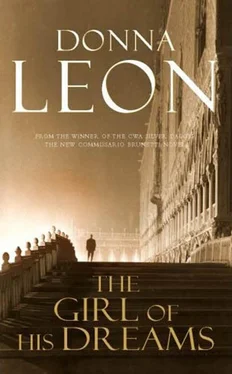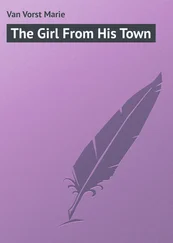'You think that would be right?' Brunetti asked.
The driver changed lanes smoothly and didn't speak for some time, eyes careful on the road. 'Well, speaking for myself, sir, for my own family, I think it would be too much. Really I do. I'd find a way to stop them.' He thought about this, then said, 'Well, maybe these people wouldn't like to have their kids taken away, either, now that I think about it.' Another long silence, and then the driver said, ‘I guess we don't all have to love our kids in the same way, eh?'
'No, I suppose not,' Brunetti agreed.
'And the kids, what do they know about anything?'
'I'm not sure I follow you,' Brunetti said.
'What they get is normal, isn't it? I mean, to them it is. All kids know about a family is what they see around them. That's what's normal. For them, I mean.' He let Brunetti consider this and then added, 'When I take them back, it's obvious the kids love their families.' 'And the parents?'
'Oh, they love the kids; at least the mothers do. That's obvious, too.'
'Even though it's the police who's bringing them back?' Brunetti asked.
The driver let out a surprised laugh. 'Oh, that doesn't matter to them, sir. They're happy, and the kids are, too.' He stole a glance at Brunetti in the mirror and said, ‘I guess family's always family, eh, sir?'
'I suppose so,' Brunetti agreed. 'Still, if the police brought your kids home…'
'That wouldn't happen to begin with, sir. My kids are in school, and if they weren't there, we'd know about it.' Then, suddenly changing the subject, the driver said, ‘I never got much of an education, sir. So here I am, driving a police car for a living.'
'Don't you like it?' Brunetti asked, not certain how one subject had led to the other.
'No, sir, it's not that I don't like it. Times like this, when I get to talk to someone, well, someone who talks to me like I was a person or something, I like it. But what sort of life is this for a man? Driving other people around, and knowing those other people are always going to be more important than I am? I'm a police officer, yes, and I get the uniform and a gun, but all I'm ever going to do is drive this car. Until I retire.'
'Is that why you think it's important your children go to school?' Brunetti asked.
'Exactly. They get an education, they can do something with their lives’ He put on the indicator and started up the exit ramp of the autostrada. He glanced briefly at Brunetti and said, ‘I mean, that's all that matters, isn't it, that our kids have a better life than we did?'
'Let's hope, eh?' Brunetti asked.
'Yes, sir,' the officer answered.
He drove through the exit from the autostrada, stopped at a red light and looked both ways, then turned to the left. Because of the oncoming traffic or perhaps because he had said all he had to say, the driver grew silent, and Brunetti shifted his attention to the passing scenery. It was difficult for him to understand how drivers found their way back to a place. So much could change: trees and flowers blossomed or died, fields were ploughed or harvested, parked cars changed their places. And if a driver lost his way, it was difficult to pull over and stop, even worse to try to go back in the direction from which he had come. And there was the perpetual irritation of traffic, cars buzzing at them like insects from every side.
They made another turn. Brunetti looked around and recognized nothing. The houses disappeared and the world turned green.
After some time the car pulled up at the gates to the camp. The driver got out and opened them, came back and drove inside, then got out again and closed them. If they were so easy to open, what purpose did the gates serve?
Two men sat on the steps of one of the caravans; three others stood around the open bonnet of a car, bent over and peering inside. None of them acknowledged the arrival of the police car, though Brunetti saw from the sudden stillness that passed over their bodies like a wave that they were aware of it.
Brunetti got out of the car, motioning to the uniformed driver to remain inside. He walked towards the three men at the car. 'Buon giorno, signori’ he said.
One after the other, they glanced at him, then back into the viscera of the car. One of them said something Brunetti could not understand, pointing to a plastic bottle with a hose running through a red cap on the top. He reached forward and prodded it so hard that the liquid inside it could be seen to ripple, then the other two remarked on what he had done.
The three men stood upright and, as if they had practised the manoeuvre, pushed themselves away from the car at the same instant and headed back towards the caravans. After a time, Brunetti approached the two men sitting oh the steps. They glanced at him as he approached.
'Buon giorno, signori,' he said.
'No italiano,' one of them said, smiling at his friend.
Brunetti walked back to the police car. The driver rolled down the window and looked at Brunetti, who asked, 'You know a lot about cars?'
'Yes, sir, I do.'
'Anything wrong with any of the cars you see here? I mean legally wrong.' Brunetti added, pointing with his chin to the circle of cars in front of them.
The driver opened the door and got out. He took two steps nearer the cars and ran his eyes carefully over them. 'Two of them have broken tail lights,' he turned to tell Brunetti. 'And three of them are driving on tyres that are almost bald.' He looked at Brunetti, then asked, 'You want more?'
'Yes.'
The driver walked over to the line of cars and, one by one, made a careful circuit of them, glancing into the back seats to check for seat belts, looking for broken headlights and the absence of green insurance cards.
He walked back to Brunetti and said, 'Three of them can't be driven legally. One has tyres that might as well not be there, and two of them have insurance cards that expired more than three years ago.'
'That enough to get them towed away?' Brunetti asked.
'I'm not sure, sir. I've never worked in traffic.' He glanced back at the cars, then added, 'But it might be.'
'We'll see,' Brunetti said. 'Who's got jurisdiction here?'
'The province of Treviso’
'Good,' Brunetti answered.
Brunetti had often reflected on the meaning of the phrase 'net worth', especially as it was used in an attempt to calculate the wealth of a person. It usually included their investments, homes, bank accounts, possessions: only those things which could be seen, touched, counted. Never considered, as far as he could tell, were such intangibles as the good or ill will which followed a person through life, the love he gave or the love which was felt for him, nor, important in this instance, the favours he was owed.
Brunetti, whose net financial worth could easily be quantified, had vast other resources upon which he could draw, in this case a university classmate who was now Vice-Questore of Treviso and upon whose order, thirty minutes later, three police tow trucks, one after the other, pulled up to the gates to the nomad camp.
Brunetti's driver opened the gates, and the trucks drove in. From the first one, a uniformed police officer climbed down and, ignoring Brunetti and the driver, walked over to the first of the three cars Brunetti had reported. Using a hand-held computer, he typed in the licence plate, waited for the response to come up on the screen, then typed in some more information. After a moment, the computer spat out a small sheet of white paper, which the officer tucked under the windscreen wiper of the car. He followed the same process with two other cars, and when he was finished, waved his hand to the drivers of the three trucks.
With a precision Brunetti could but admire, they drove their trucks closer to the rear of the cars, turned, backed up to them, and got out. In a motion as practised as that of the three nomads pushing themselves away from the hood of the car, they attached their tow hooks to the backs of the cars and returned to the cabs. The fourth officer saluted Brunetti, climbed back into the cab of the first truck, and slammed his door. The engines of the three trucks whined to a new pitch. Slowly, the rear ends of the cars rose into the air. Then the trucks lined up in a row and drove through the gate, each towing a car. Outside, they stopped, and the same officer got out and came back to close the gates. The trucks drove off. The entire operation had lasted less than five minutes.
Читать дальше





![Theresa Cheung - The Dream Dictionary from A to Z [Revised edition] - The Ultimate A–Z to Interpret the Secrets of Your Dreams](/books/692092/theresa-cheung-the-dream-dictionary-from-a-to-z-r-thumb.webp)






